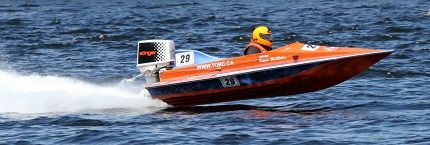Quote:
Yup agreed Dave the 160lb rule stays and easy to test.
"What I don't follow is the logic or purpose of the pump fuel only, and what it is trying to prevent. No one has to run race fuel it's a personal choice if you want to run it in a 160lb compression motor, it's like debating what brand of oil you run and at what ratio. You could have run race fuel in your 25 if it passed the fuel test for SO, and some of the race fuel is legal per that testing. Does it mean you need or should run it no, personal choice and people can figure out what is right for them on their own. My thought is if we follow the SO fuel testing rules it's simple, efficient and accurate. Top three boats simple dip of the test probe, pass/fail, done. Guys who think they are going to be top three would be wise to get fuel tested before hand, some pump fuel does not pass as has been seen at the races, it's not that guys are trying to cheat but some pump gas has additives that doesn't pass. Just trying to keep things simple in my eyes."
Hey Paul
I posted a reply to this yesterday and it got lost in cyber-space?
Compression checks have many flaws, they vary for many reasons such as exhaust port height, ring seal, ring gap, cranking speed, compression reliefs, cylinder wetness, cylinder temp, etc. A true hi-performance 2 stroke actually has a lower compression than stock due to the super charging effect of the tuned exhaust.
Fuel however, is a field leveler. No matter what engine you have and no matter what "Effective" compression you have, a given fuel will limit and restrict what you are running.
Example; A raised exhaust port and appropriate megaphone will show a lower compression reading yet actually have more effective compression than stock. You won't get away with this added compression if you are restricted to pump fuel, everything else being equal.
That being said, I am still comfortable with just a simple compression check. Someone having to supply fuel at a race is more trouble than it's worth, at least at this stage.











